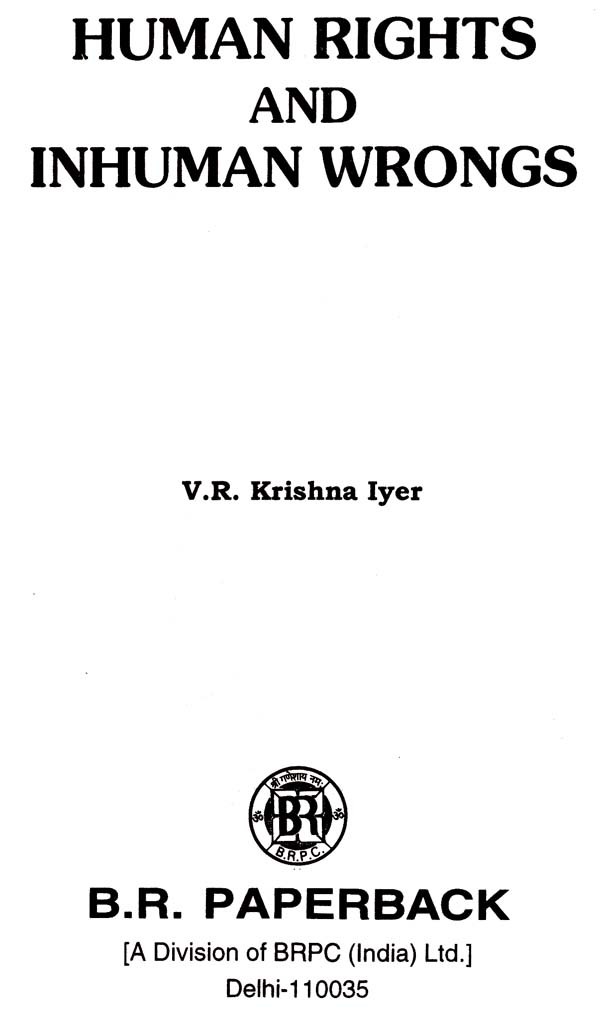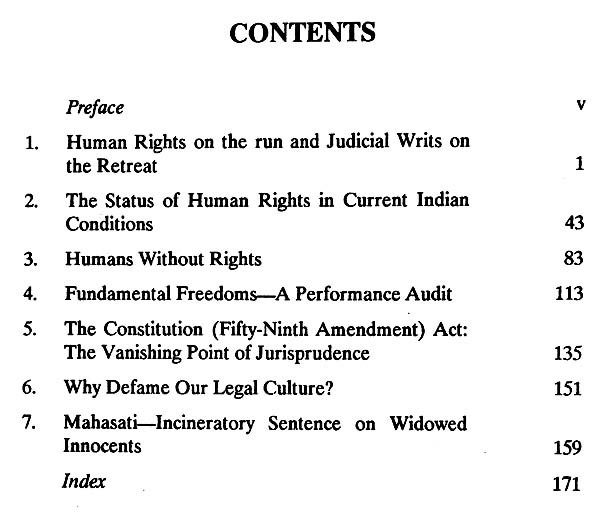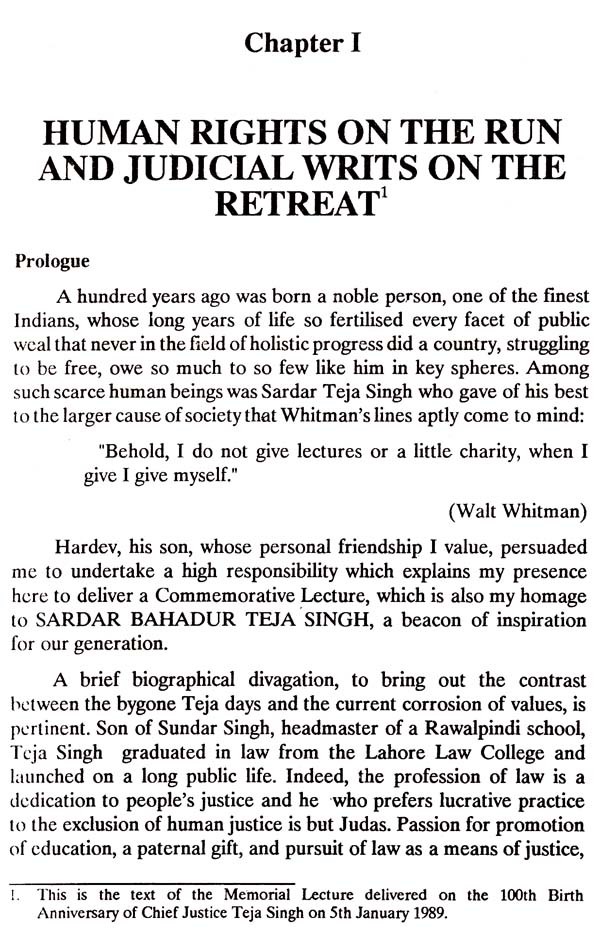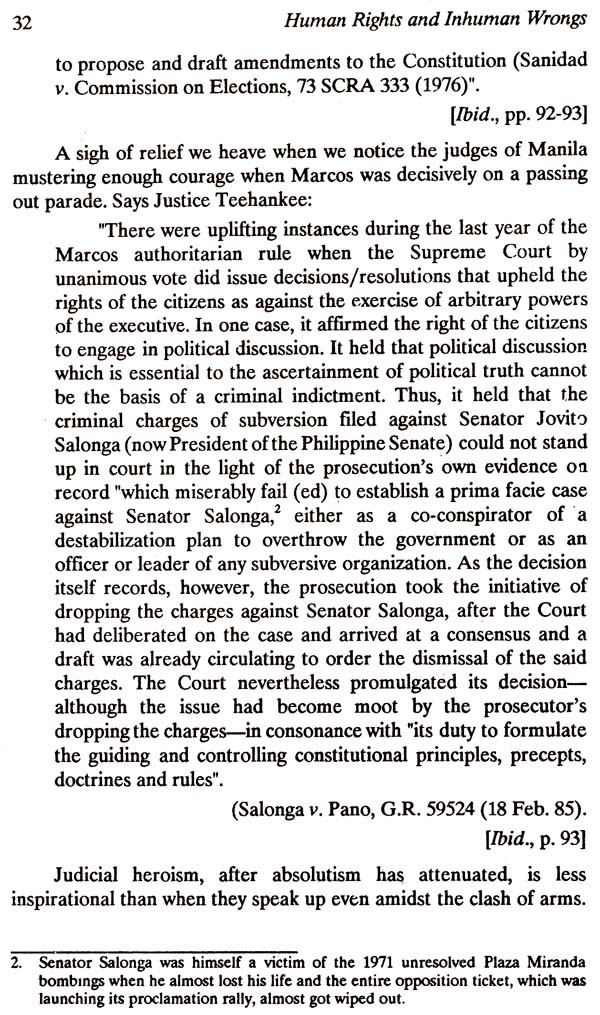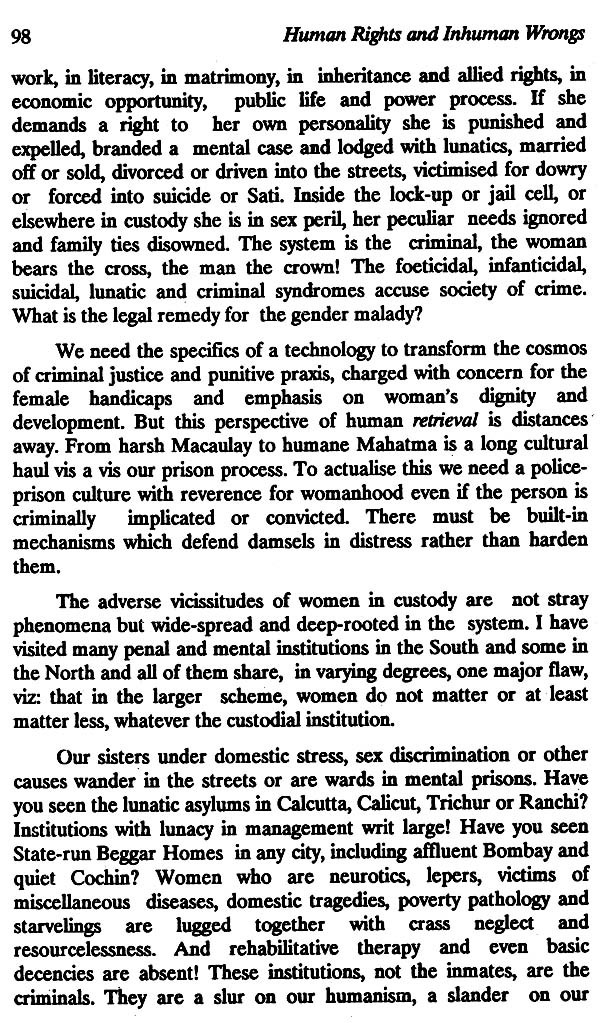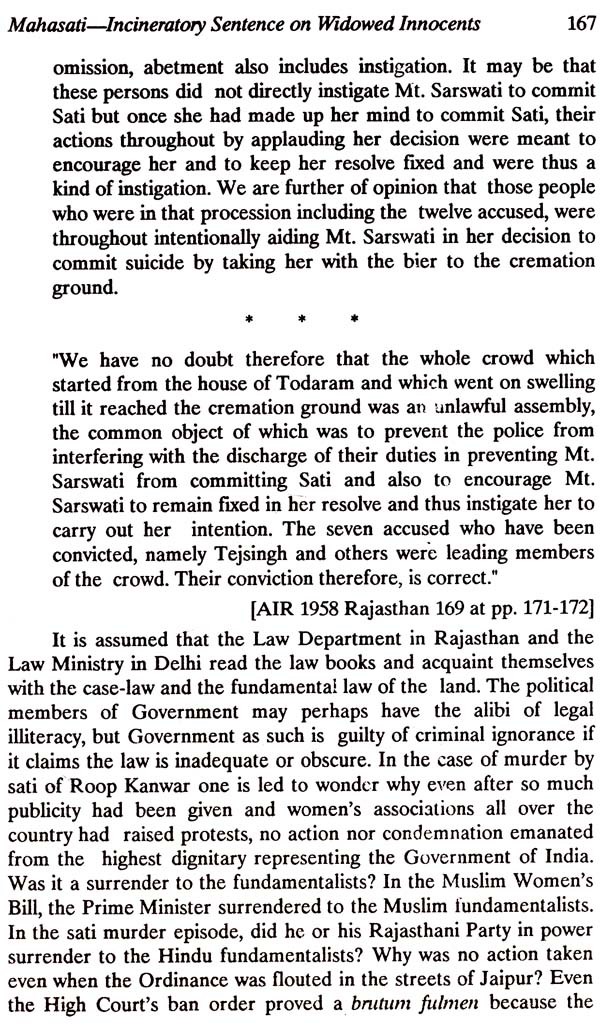
Human Rights and Inhuman Wrongs
Book Specification
| Item Code: | AZE632 |
| Author: | V.R. Krishna Iyer |
| Publisher: | B.R. Publishing Corporation |
| Language: | ENGLISH |
| Edition: | 2001 |
| Pages: | 178 |
| Cover: | PAPERBACK |
| Other Details | 8.50x5.50 |
| Weight | 200 gm |
Book Description
The author has discussed the working of human rights in actual practice in many countries, including India. The author refers to the Defamation Bill introduced in the Indian Parliament but which had to be withdrawn on account of its condemnation from all quarters.
The book critically examines the subject of human rights and offers suggestions for improving the existing conditions.
Shri lyer is in the forefront of those who are working for a better world. He has a mission in life and for its fulfilment, he is busy day and night. The subject who is dearest to him is social justice to achieve which he has spent the whole of his life.
We live in a period of civilization when human rights have received recognition through universal instruments and national constitutions. But the poignant paradox of contemporary times is that humans without rights are on the increase; blood and tears, trauma and torture, claim victims everywhere and the land of the Buddha and the Mahatma, several decades after fundamental freedoms were guaranteed, is witness to the distressing reality of social, economic and political have-nots being denuded of dignity, peace and the right to life itself. Human inhumanity takes many forms, social injustice afflict in various ways and faith in the values of our cultural heritage fades away as hope evaporates. When Indians made their symbolic tryst with destiny at the dawn of Independence, a Future Shock did not mar the horizon. But expectations darkened into anxiety, anxiety into dread and dread into despair. This mood of despondency is negative and must melt before the burning sun of collective militancy conscientised by a call for change. Everyone who belongs to the party of compassion has now a summons to action. 'Do or die' is the legacy Gandhiji handed down to us. It has relevance now, confronted as we, in India, are by new challenges and fresh crises. Humanism is now on the cross and the Establishment is Pontius Pilate. From crucifixion to resurrection is a long haul.
The chapters of the book written, not as a continuous presentation but on divergent occasions, have a common theme human rights must triumph over inhuman wrongs. But without struggle injustices cannot be wished away. Here comes the need for operation sensitization.
**Contents and Sample Pages**
